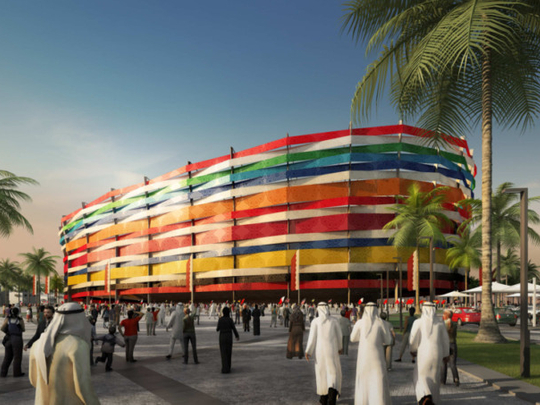
The construction industry in the GCC has cause to rejoice. Government-supported infrastructure spending on transport and utilities will boost the region’s sector in the years to come. Billions of public funds will also be pumped into several mega projects, among them the Trans-GCC railway, airport expansions, preparations for the 2022 Fifa World Cup in Qatar and several large projects in Saudi Arabia. State-owned utilities, for example Adwea and Dewa in the UAE, are willing to take majority equity stakes in projects and provide government guarantees to attract investors. If Dubai wins the bid to host Expo 2020, another push will rattle across the industry. Furthermore, a decline in construction material prices such as steel and cement has reduced project costs.
Infrastructure leads
In the UAE, the property and construction sector contributed 21 per cent to Dubai’s overall GDP growth of 4 per cent in the first half of this year, according to figures released by the Dubai Economic Council. This was second only to the retail and wholesale sector with 28 per cent.
“We do expect infrastructure projects such as airports, roads, ports, sewage networks and so forth to be a key focus for GCC governments moving forward as these countries invest in upgrading existing networks in addition to massive expansion projects to cater for a growing population,” says Taher Safieddine, analyst with Dubai’s Shuaa Capital. The total value of projects planned or under way in the UAE stands at around $549 billion (about Dh2 trillion), with transport projects amounting to 13 per cent of total construction spending in the UAE.
The country will contribute $11 billion to the new GCC railway network — the total cost of the project being around $100 billion. Other current mega-projects are the expansion of Abu Dhabi International Airport, costing $6.8 billion and Dubai’s airport expansion for $7.8 billion. Dubai also plans to build the 1,000 megawatt Shaikh Mohammad Bin Rashid Al Maktoum Solar Park at a cost of $3 billion, in line with the UAE’s plan to diversify its economy away from hydrocarbons and open new opportunities for alternative and promising economic sectors. In the energy sector, another big project is the planned nuclear power plant in Abu Dhabi with estimated project costs of around $30 billion.
Safieddine says that the UAE construction sector, having recovered in 2012, can expect around $19-billion worth of new projects to be awarded this year alone, with about $300-billion worth construction projects awarded in the Mena region as a whole.
Consultancy Deloitte saw the construction sector in the GCC gain significant momentum in 2013, backed by local housing projects, infrastructure development, and nuclear power and oil and gas agreements. Total capital investment in construction projects in the GCC this year stood at $95 billion, of which 30 per cent belonged to the UAE, which was second only to Saudi Arabia with 39 per cent and followed by Qatar with 12 per cent, according to Deloitte.
Difficulties ahead
However, the huge projects under way will also bring challenges. “With significant investment in major infrastructure programmes increasing over the coming years across the GCC, contractors, consultants and clients alike need to rethink the way they engage with each other if they are to truly realise the benefits each can bring to the process,” says Cynthia Corby, Audit Partner and Leader of the Construction Industry Sector for the Middle East at Deloitte.
Andrew Jeffrey, Director of Corporate Finance at Deloitte Middle East, adds, “By leveraging best-in-class internal controls, contractors too can deliver more for less while retaining existing or improved profitability. Additionally, by engaging more intelligently with clients, contractors should look at more innovative ways of sharing savings, risks and opportunities to the benefit of all.”
However, the analysts also concede that project or award delays are likely to remain, and increased competition will put pressure on margins. Those construction companies with strong working capital and balance sheets will have the best prerequisites to succeed.












